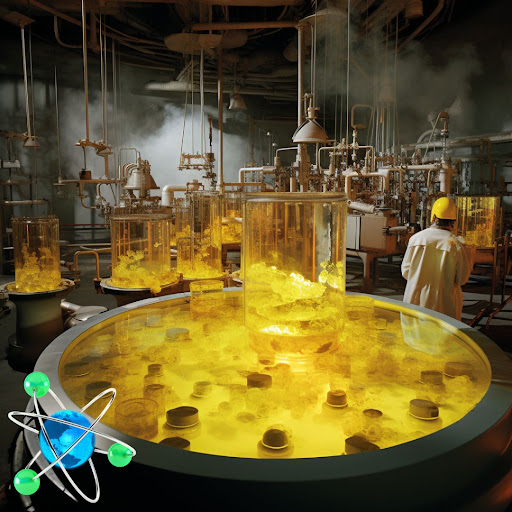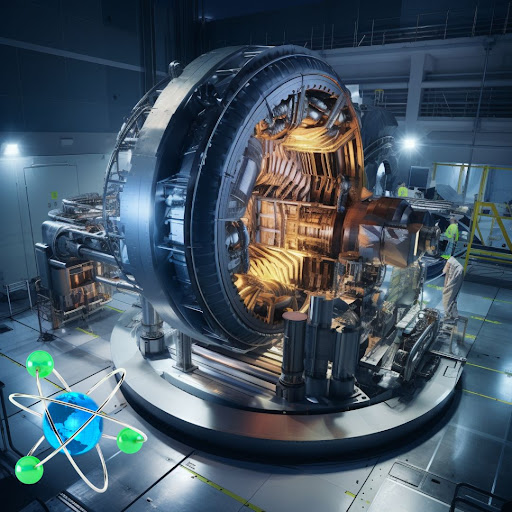
- ACO, a subsidiary of Centrus Energy Corp, has obtained NRC clearance to operate an advanced centrifuge cascade in Piketon, OH, to produce HALEU for advanced reactor technologies.
- The project aims to produce 20 kilograms of HALEU initially, with plans for an additional 900 kilograms in the following year, supporting new reactor designs and fuel qualification.
- This milestone addresses the lack of domestic HALEU supply, advancing clean energy innovation and contributing to the nation’s goal of a net-zero emissions economy.
American Centrifuge Operating (ACO), a subsidiary of Centrus Energy Corp, has reached a significant milestone in its pursuit of advanced reactor technologies in the United States. The company is moving closer to operating an advanced centrifuge cascade in Piketon, OH, to produce high-assay low-enriched uranium (HALEU), a crucial material needed to develop and deploy advanced reactors. This achievement comes as the U.S. Nuclear Regulatory Commission (NRC) recently granted clearance for the facility to commence enrichment operations for the U.S. Department of Energy’s (DOE) first-of-a-kind HALEU demonstration project.
The core objective of the project is to produce 20 kilograms of HALEU before the end of the year. ACO’s success in completing operational readiness reviews with the NRC marks a vital step towards fulfilling this ambitious target. Building on a 3-year collaboration with the DOE, during which 16 advanced centrifuges were manufactured and assembled into an enrichment cascade, ACO was competitively awarded a follow-on contract in November. This new contract empowers the company to start up and operate the enrichment cascade, showcasing the production of 20 kilograms of HALEU initially, with plans to produce an additional 900 kilograms the following year, contingent on congressional appropriations.

The implications of this milestone extend beyond mere production figures. HALEU is indispensable for fueling numerous promising new reactor technologies currently under development and supporting vital fuel qualification and testing for new reactor designs. Its deployment is essential to realize smaller reactor designs, longer operating cycles, and increased efficiencies compared to existing technologies.
The impact of ACO’s efforts is not limited to the laboratory, either. The HALEU produced in this project will play a pivotal role in fueling the initial cores of two demonstration reactors awarded under the DOE’s prestigious Advanced Reactor Demonstration Program. By supporting the qualification and testing of new reactor designs, the HALEU demonstration project is laying the foundation for the next generation of advanced nuclear technologies in the United States.
The significance of this project goes beyond its technological contributions. HALEU is not currently available from domestic suppliers, and inadequacies in the nation’s fuel cycle infrastructure could hinder the timely deployment of advanced reactors—a critical factor in achieving the nation’s ambitious target of reaching a net-zero emissions economy by 2050. ACO’s Piketon plant, as the sole facility in the U.S. licensed to enrich uranium up to HALEU levels of 20 percent, is playing a pivotal role in overcoming this obstacle.
Jon Carmack, DOE’s Deputy Assistant Secretary for Nuclear Fuel Cycle and Supply Chain, emphasized the importance of this development, stating, “This is a significant step in establishing commercial production of HALEU in the U.S. It will not only help fuel the dozens of promising new reactor technologies currently under development but also support more than 100 local jobs in the Piketon area.”
The positive impact of the HALEU demonstration project on the local economy and the advancement of advanced nuclear technologies reflects the commitment of ACO and Centrus Energy Corp to propel the United States into the forefront of clean energy innovation. The DOE’s HALEU Availability Program, spearheaded by this project, is exploring multiple avenues to ensure a steady supply of HALEU, laying the groundwork for a sustainable, low-carbon future.
As ACO moves forward, the company is now focused on completing the construction of an on-site HALEU storage area and conducting final testing activities before the cascade’s full-scale operation. The successful execution of this demonstration project represents a pivotal moment in the pursuit of advanced reactor technologies and a crucial step towards realizing a sustainable and cleaner energy future for the United States and the world.
